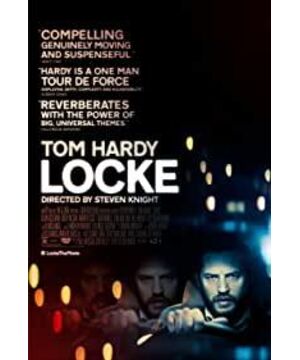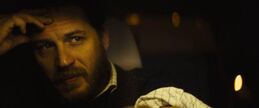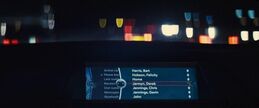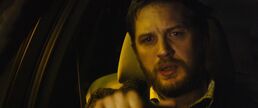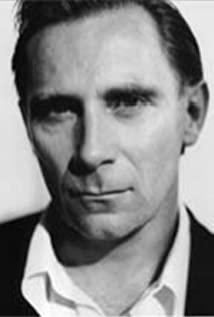Locke,
This is a film that challenges the established genre of film and has a certain experimental flavor.
In the feature film of less than 80 minutes, there is only one character , the actor Ivan Locke played by Tom Hardy, a construction supervisor, husband, father, lover.
The whole film takes place in a car. We use the car to judge the trend of the plot through the hero Ivan Locke's non-stop use of the car, and make up for the story experience that happened outside the car.
As Ivan Locke himself said, before he got in the car, he owned the whole world, but in just a few dozen minutes away, he lost his diligent and diligent 9 years of work, and the Family with two children.
Within a few tens of minutes, we witness the middle-aged man's life falling apart.
The source of everything seems to come from an accidental derailment , but it actually carries the man's hatred for his father and family of origin.
With its extremely stylized narrative style, "Rock" won the 86th National Critics Association Award for Top Ten Independent Films, and director and screenwriter Steven Knight won the 16th British Independent Film Award for Best Screenplay.
Fixed field, using communication equipment to expand the narrative possibilities outside the closed space, in fact, has long been a gem.
For example, the popular "Buried Alive" tells the story of a truck driver who was kidnapped by terrorists in an attempt to escape from a coffin buried in the ground;
There is also the earlier "Sniper Phone Booth", which tells the adventures of an urban white-collar worker who was threatened by a stranger and controlled in a phone booth.
"Locke" put the scene in the car, the body movements of the characters completely disappeared, and we can only experience empathy through Tom Hardy's facial expressions.
"Rock" reinforces the importance of lines to film.
In the short 80-minute feature film, the male protagonist Ivan Locke communicated with the outside world in different identities through the car phone , trying to solve the accidents of work and life.
All the troubles started with an infidelity. After the one-night stand that night, his assistant was pregnant and was about to give birth today. He decided to drive to accompany him to put an end to this "mistake".
First of all, he had to solve the problem at work. In a few hours, the largest concrete pouring project in Europe would be kicked off, and as the commander-in-chief, he could not reach the scene to direct.
The supervisor is mad and the boss is furious. He can only rely on an alcoholic subordinate to complete the huge and complicated follow-up work.
Problems keep coming, and accidents come one after another. He must trust others, patiently ask for help, and solve the crisis;
Then, he also had to appease his family. He confessed to his wife that although he had been loyal for more than ten years, there was a world of difference between what he had and what he did not cry. He prayed for forgiveness and hoped to solve the problem rationally.
But in the face of his sons' expectations and his wife's heartbreak, he gradually found that he was powerless;
Finally, he still needs to convince his lover to let her give birth at ease, and not to delay the child's future with the emotional entanglement between the two.
Suspicious and insecure lovers are always delaying the delivery period. The doctor reminds that the fetus is tied around the neck, and further delay will threaten the life of the fetus;
In this way, Ivan Locke kept changing his identities and was under enormous pressure from many parties. Everything was extremely urgent. He had to be in the car, driving fast to the hospital, under the hood of someone with a severe cold. A tired body can be solved piece by piece through tenacious willpower.
"Locke" amplifies the anxiety of ordinary people and focuses on the complex inner heart of individuals when they suffer from accidents.
He will be angry, because others are unreliable, some people will make things difficult, and the plan cannot keep up with the changes;
He will cry, because the fault is his, he has failed his family's expectations, it is sad, and he becomes vulnerable;
Being strong on the one hand and weak on the other, accepting and resisting on the other, is the natural state that every adult will show when faced with pressures and choices on the road of life.
Narrative extension through lines, including actors' performances, is the most powerful weapon for "Rock" to get rid of monotonous scenes.
A driving trip is a metaphor for an accident on the road of life, and the experience on the road undoubtedly implies the path of life.
In all four stories, we find the pulling relationship between the Father and the Son , which implies a dialectical relationship between rebirth and destruction.
Concrete pouring affects whether the building he oversees can be successfully completed. In his wife's lines, we learn that Ivan Locke is focused on his work.
"You love those buildings even more than us".
Every building, every pouring of concrete is a birth ceremony for a newborn. He hopes to see his project successfully completed, which is the responsibility of his father and the embodiment of his ability.
When the social subordinates complete the work, there is also an obvious father's attitude of educating his son to grow up. He is worried that he will not be able to complete it, and he finds that he can find a way by himself. This experience makes him gratified.
When facing the family, the son kept calling his father to tell his father about the game. Even after finding out that his mother was in trouble, he still comforted his father, saying that the game had been recorded. When he came back, the family pretended that nothing happened. As before, happily re-appreciating the game.
When facing his lover, he hopes that the child can live with him in the future, and he hopes to dissolve the so-called accidents and mistakes through companionship and his healthy growth.
Behind the three stories, there is a very obvious father-son story line. When Ivan Locke reached the peak of anxiety, he would talk to himself and talk to the air man in the back seat of the car, which was his love for his father. The hatred is at play.
It turned out that his father once abandoned him. In his eyes, his father was worthless. He was afraid that he would inherit his father's blood and become a loser like his father. He did not dare to take responsibility.
In order to resist his so-called family illness, he desperately wants to save everything, so he is diligent at work and a qualified husband and father at home,
In the face of an unexpected illegitimate child, he resolutely decided to leave everything behind to welcome his birth and correct his mistakes.
All he does is try to prove that he is different from his father and that he will not become the same as him.
Mission, responsibility, and destiny are all themes in it. "Locke" uses dramatic conflict to express the "sudden attack" of life in an extreme way.
The important thing is to face it, rather than choose to escape, which is probably one of the themes that the film wants to convey.
Personally, I really like the ending point of the movie selection,
On the other end of the phone, Locke heard the cry of a newborn baby, which is a symbol of hope and beauty. He still failed to resolve the turmoil at both ends of the family and work. The film did not give a final ending. The success or failure of the new life depends on it. does not have any specific meaning.
Meeting one life is more important than any other, it's the key to Ivan Locke being who he is and why the film begins, so it's good to let the story end here,
Praise life and fulfill yourself.
In the end, "Locke" seems to show a man's life that gradually collapses, but in fact it is the process of him constantly letting go. It is not necessarily the embarrassment after losing the helmet and the armor, but most likely it is the ease after being relieved.
There is a difference between giving up and letting go that cannot be ignored.
View more about Locke reviews


